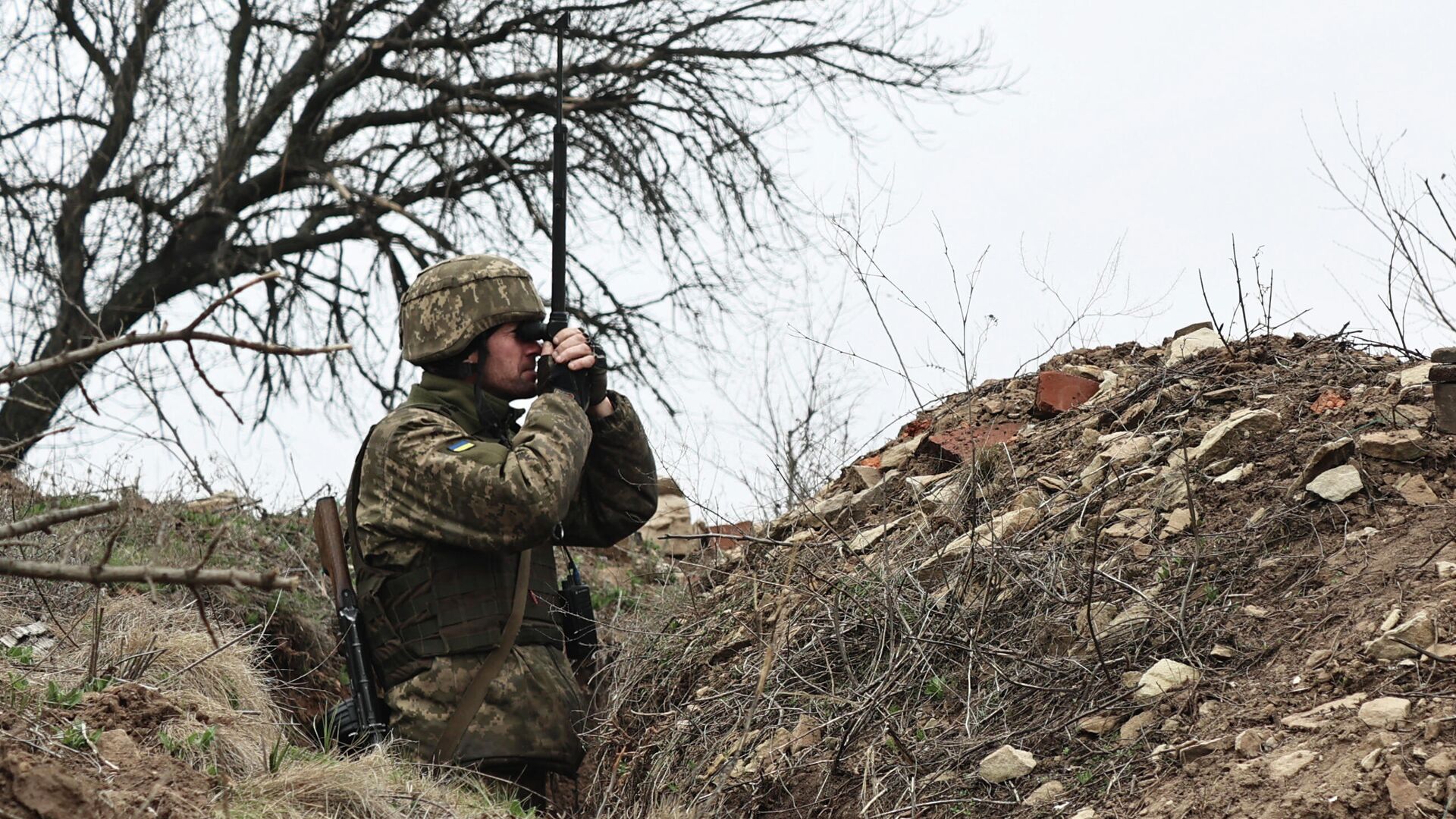Pentagon Claims Russians ‘Likely to Want to Fabricate’ Attack by Ukraine to Justify Invasion
17:07 GMT 03.02.2022 (Updated: 19:38 GMT 03.02.2022)

© AP Photo
Subscribe
After months of claiming a Russian invasion of Ukraine was "imminent," the Biden administration on Wednesday said it would stop using the term because it "sends a message that we weren’t intending to send," according to spokesperson Jen Psaki.
“We do have information that the Russians are likely to want to fabricate a pretext for an invasion - which again, is right out of their playbook,” US Secretary of Defense spokesperson John Kirby told reporters on Thursday afternoon. The Washington Post newspaper had claimed earlier in the day that the White House planned to accuse Russia of intending to stage a false flag attack in Ukraine to create a justification for invading the country.
“One option, the Russian government we think, is planning to stage a fake attack by Ukrainian military or intelligence forces against Russian sovereign territory or against Russian-speaking people, to therefore justify their action," he said.
“As part of this fake attack, we believe that Russia would produce a very graphic propaganda video, which would include corpses and actors that would be depicting mourners, and images of destroyed locations as well as military equipment at the hands of Ukraine or the West - even to the point where some of this equipment would be made to look like it was Western-supplied-to-Ukraine equipment," the Pentagon spokesperson claimed.
Kirby could not confirm a reporter’s question about if Russian President Vladimir Putin knew about or had approved of the plan, and would only state that “Our experience is [that] very little of this nature is not approved at the highest levels of the Russian government.”
Kirby also refused to confirm or deny that US Secretary of Defense Lloyd Austin and Chairman of the Joint Chiefs of Staff Mark Milley were discussing the intelligence with congressional lawmakers in classified meetings about the region scheduled for today.
In response, Russian Permanent Representative to the EU Vladimir Chizhov said in a statement on Thursday that Russia has "never" done such things and he condemned Washington for claiming otherwise.
The accusation follows previous claims by the Biden administration of plans by Russian operatives to carry out sabotage operations or other false flag attacks in Ukraine, including alleged plans to orchestrate unrest that would topple the US-backed government in Kiev.
The US has claimed since November 2021 that Russia is amassing an invasion force on its western border to prepare for an attack on Ukraine, which has grown increasingly hostile toward Moscow since the US-backed coup in 2014 that brought a right-wing nationalist government to power. However, Moscow has denied any plans for an attack and says its forces are engaged in drills on sovereign Russian territory.
A similar situation unfolded in the spring of 2021, which ended uneventfully after Russian troops finished their drills.
Indeed, Ukrainian leaders have also said the Russian force near the border is insufficient to form an invasion force and that such deployments by Moscow are both typical and legal. On Wednesday, Ukrainian Foreign Minister Dmitry Kuleba said Kiev was "ready to negotiate with Russia in any format to look for a diplomatic solution to a military conflict between our countries that has lasted for eight years already."
Last week, Ukrainian Defense Minister Oleksiy Reznikov accused the West of whipping up hysteria about a Russian invasion that isn't going to happen because “panic and fear is the most clickable." Nonetheless, Kiev has moved its own forces close to the border with Russia and the buffer zone near the autonomous rebel cities in the Donbas region, a Russian-majority region where rebels revolted in 2014 following an attempt by Kiev to remove Russian as a national language in the country.
Russia has also exchanged several written proposals about longer-term security guarantees with the US and NATO, including that NATO agree not to expand further eastward or to admit Ukraine as a member, and that it agree not to position offensive weapons in Ukraine or intermediate-range missiles in nearby countries.

